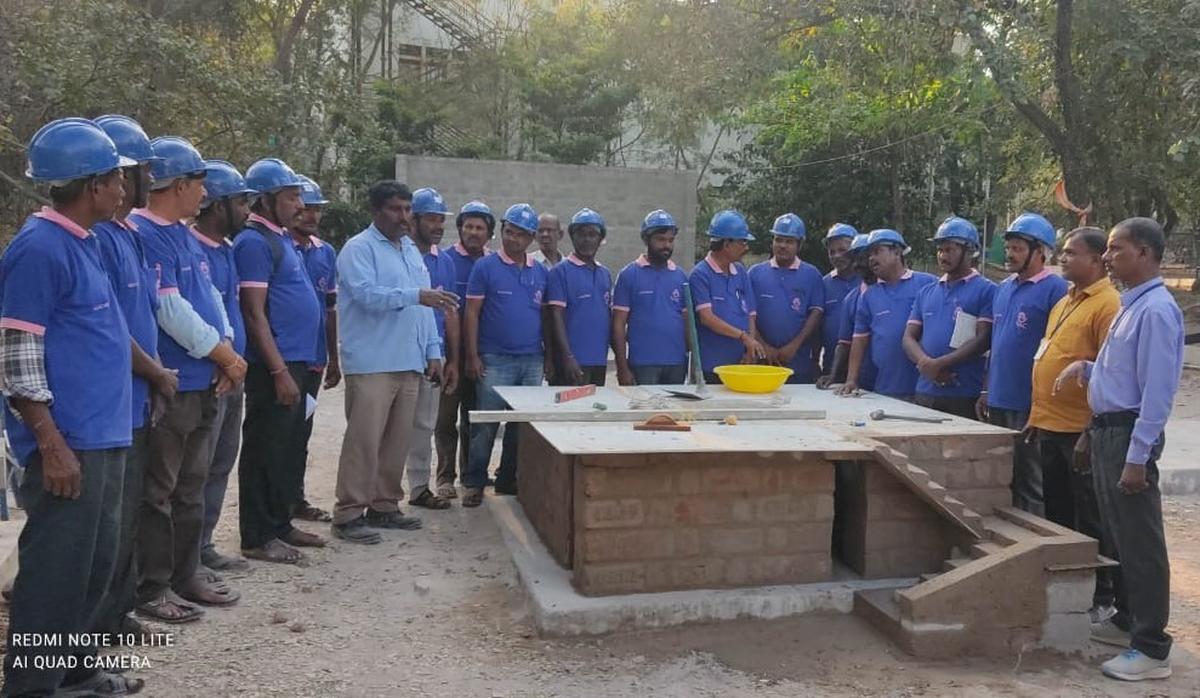Hoping to kickstart the festive season with a bang, Hyundai has launched the i20 facelift in India at a starting price of Rs 7 lakh. First previewed overseas a few months ago, the Hyundai i20 facelift gets a handful of styling changes, a refreshed interior and more safety equipment as standard. Prices for the revamped premium hatchback rise to Rs 11.01 lakh (all prices, ex-showroom), but they also start lower than they did previously, thanks to the introduction of a new base variant.
| Transmission | Price (ex-showroom) | ||||
| Era | Magna | Sportsmanship | To stay | this | |
| MT | Rs 7 lakh | Rs 7.67 lakh | Rs 8.33 lakh | Rs 9.29 lakh | Rs 9.98 lakh |
| IVT | – | – | Rs 9.38 lakh | – | Rs 11.01 lakh |
Also Read: Hyundai Creta, Alcazar Adventure Edition Launched: Prices Start Rs 15.17 Lakh

Rear bumper incorporates a faux diffuser element.
The styling changes for the updated i20 are the most obvious at the front. The LED headlights have been restyled, and there’s a new grille, with the Hyundai logo moved up onto the nose of the hatchback. The front and rear bumpers have been redesigned, and the fog light housings deleted. Also different is the design for the 16-inch alloy wheels (exclusive to the Asta and Asta (O) variants). There’s also a new ‘Amazon Grey’ paint option on offer.
Also Read: Auto Sales August 2023: Hyundai Registers Cumulative Sales Of 71,435 Units
The new entry-level Era variant is a full Rs 70,000 cheaper than the next variant in the line-up, but misses out on automatic headlights, keyless entry, tyre pressure monitoring, rear AC vents and USB charger, 8.0-inch touchscreen and rides on 14-inch steel wheels with no wheel covers. Prices of all the other variants have witnessed an increase of anywhere between Rs 20,000 to Rs 25,000, with this update.
Also Read: Hyundai India Signs Asset Purchase Agreement To Acquire GM’s Talegaon Plant

Dual-tone interior colour scheme is new.
Inside, the only notable changes come in the form of a dual-tone colour scheme (black and light grey), a volume control knob for the infotainment system and a flat-bottom steering wheel, with the rest of the dash layout and touchscreen carried over unchanged. Safety kit has been improved, with six airbags now standard across the variant line-up, making the i20 the second most affordable Hyundai to come with six airbags. Other key standard safety equipment includes electronic stability control (ESC), anti-lock braking system (ABS), hill start assist, vehicle stability management, three-point seatbelts for all passengers and ISOFIX child seat anchorages.
The Hyundai i20 is now available with a single engine option – the 1.2-litre, four-cylinder Kappa petrol that puts out 83 bhp (87 bhp in the automatic variant) and 114.7 Nm of torque. The engine is now fitted with a stop-start system, that promises to boost fuel efficiency. A 5-speed manual is standard, and a continuously variable transmission (CVT auto) is also on offer, but the 1.0-litre turbo-petrol engine, which was available with the dual-clutch automatic gearbox, has been dropped from the line-up. The feisty turbo-petrol is likely to be exclusive to the i20 N Line, going forward.
The updated Hyundai i20 renews its rivalry with the Maruti Suzuki Baleno, Toyota Glanza and Tata Altroz.






